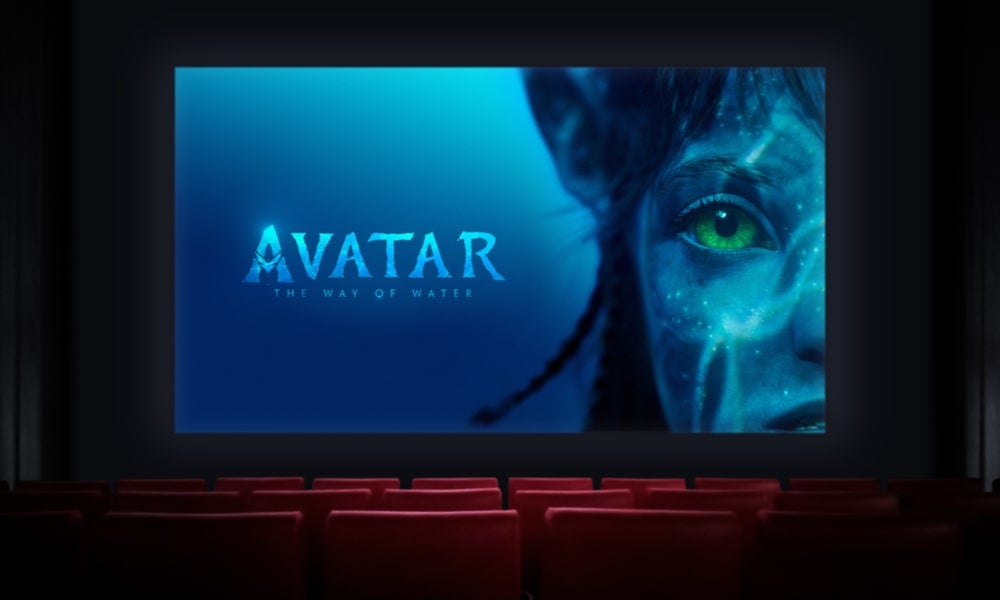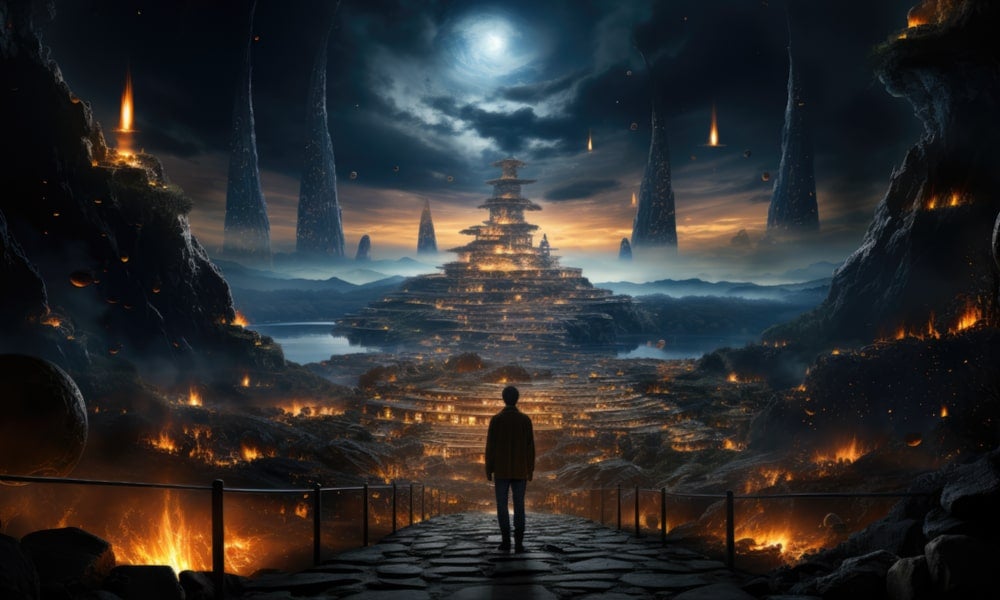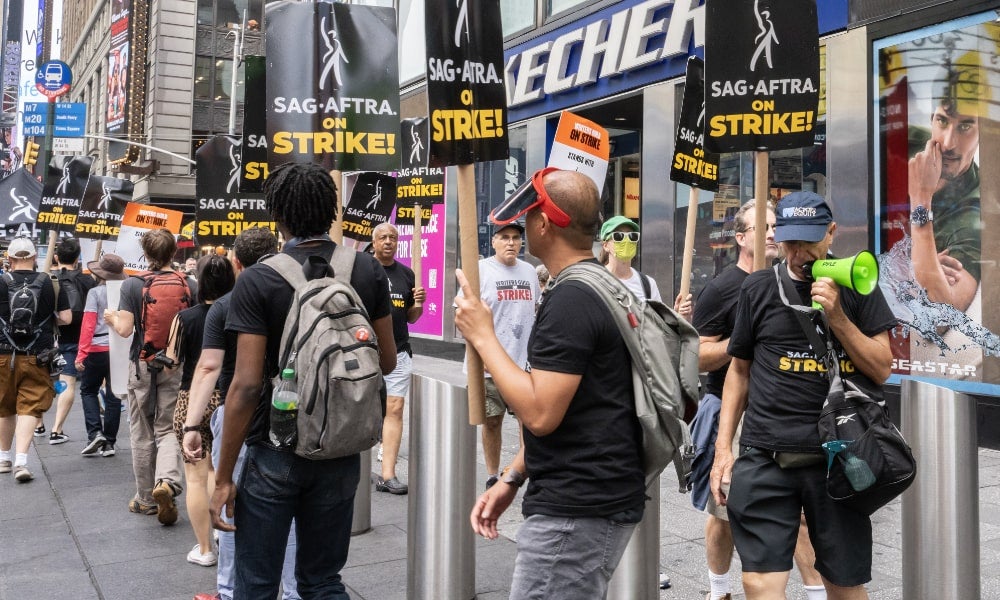James Cameron on how AI will impact creativity and innovation
Artificial intelligence is having a significant impact but it can't create and innovate in the same way that humans can, according to Hollywood producer James Cameron
For more than four decades, James Cameron has indelibly marked the film industry by weaving technological advancements with unparalleled storytelling prowess. His relentless pursuit of marrying artistry with cutting-edge technology has redefined the cinematic experience. As a maverick in computer-generated imagery (CGI) and digital effects, Cameron's impact on blockbuster films like Titanic, Terminator and Avatar transformed the landscape of moviemaking.
At the recent World Business Forum in Sydney (which UNSW Business School was an academic partner for) James Cameron shared insights into a multitude of topics, from technology innovation and AI, to leadership, team collaboration and the future of the film industry.

Upholding a spirit of excellence
Cameron is a strong advocate of nurturing a “spirit of excellence” within creative teams. Cultivating this spirit helps inspire everyone to surpass their personal best, resulting in a collective pursuit of perfection. “I do that by example,” explained Mr Cameron, who has won multiple Oscars and Academy Awards for Best Director, Best Picture and Best Film Editing for his work. “So if a shot looks pretty good, I don’t pick it apart, but I try and frame it as ‘hey, wouldn't it be cool if we could do this?’ And there will always be somebody who will step up and say ‘I know how to do that’ or they'll just go back and want to bring their best game,” he said.
“With visual effects and finishing a movie like Avatar, if that spirit of excellence is there, then everybody has their own internal bar that they want to live up to.”
In the process, he emphasised the importance of collaboration and fostering open communication so that every individual understands the narrative conveyed by each shot. He explained the importance of understanding the essence of the shot and its message to the audience, and how this influences every creative decision, from design to lighting.
“I've found that the closer I communicate with people down the chain – and there are thousands of people making those visual effects – the more I can go through the problems with them personally, and the more they'll start to understand what the shots should be and what we're trying to say,” said Cameron, who engages extensively with the crew allows them to understand the core of the film, enabling them to take ownership of the project.
He explained that he can't be there for every creative decision that's made, so setting a narrative direction that resonates with the team helps establish a shared vision that enables the crew to embody the essence of the story and facilitates their creative autonomy in contributing to the film project. With Titanic and Avatar, for example, everybody could see the scale of the budget and understand the stakes. “So it just makes you better,” he said. “I don't like to create additional pressure for the team. I like to keep the pressure off them, so they're free to be creative."
Read more: How Angry Birds developer uses data analytics to inspire creativity
The innovator's mindset and embracing failure
Mr Cameron also delved into the importance of an innovator's mindset and said that fostering a culture where failure is not merely tolerated, but celebrated, is critical. Failure is not an end but a stepping stone to progress, according to Cameron, who said that this is about having the courage to experiment and understand that failure is an inherent part of innovation.
To truly innovate, he said it's necessary to break free from the fear of failure and harness it as a tool for growth. “We'll test everything to failure, we want to see where the material will fail, we want to see where the design starts to break down, we want to understand every failure mode, so that we don't fail at the end,” he said. “To me, there's a difference between failing at the end of the day at the end of the project, which to me is unacceptable. So fail early and often – I think that is really the key.”
Innovation stems from a willingness to take risks and experiment, and he said this willingness should be embraced across all facets of a creative process. “We want people to think outside the box, I encourage them to just bring the craziest idea to the table. Some crazy ideas come out of left field, and sometimes it's the answer,” said Mr Cameron, who explained that game-changing innovations arise out of creating an atmosphere where team members feel secure enough to share ideas, even if they seem far-fetched or unconventional.
“You have also got to encourage people to speak up, and say what's on their mind. If they have a concern, you can – if you're good at reading people – see it in their faces, that there's something going on, that's not being said. You want to draw that out, so you have to make it a safe place where nobody's getting ridiculed and everybody's respected. And we're just all here to solve this together,” he said.

AI and the future of creativity
With the rise of generative artificial intelligence (AI), Mr Cameron emphasised the importance of a harmonious coalescence between technological advancement and human creativity. While AI tools can streamline processes and automate and even add to certain elements of the film-making process, Mr Cameron said the essence of storytelling fundamentally relies on human emotions, experiences, and imagination that cannot be replicated by machines.
Mr Cameron said he has been using AI to assist with the production of films such as Avatar: the way of water, and is constantly experimenting with “a number of different flavours” in the process of making Avatar sequels and other movies. “We were using machine deep learning to generate algorithms that were speeding us up and giving us better work for the past eight years or so,” he said. “I think that's not really bothering anybody.”
More recently, he has been using AI to assist with pre-visualisation and imagining what a scene might look like as part of the storyboarding process – so it acts as an assistant to the creative process. “I think where people are freaking out is, does it replace the creative process?” he stated. “I think we just have to make sure that doesn't happen. We have to continue to ensure that the lived experience of an artist is still at the forefront in this work.”
Generative models scrape data from all imagery that's ever been created, and while AI can sometimes “produce quite beautiful images”, Mr Cameron said they're reflecting “our collective aesthetic, almost our collective unconscious, the way it operates in our dreams”, he said. However, AI cannot reflect on the art and understand it the same way a creative human artist can.
In this regard, AI is “really just an iterative program that’s like a parrot that doesn't understand what it's saying. It's been referred to as a stochastic parrot,” he said. “So I think it's going to drive us to look at how we can adopt it into our creative process. But at what point do we have to draw a hard line about what's helping us versus what is replacing us in a false way?”

Strikes and other challenges in the film industry
There have been significant disruptions to the film industry in recent times, including very public strikes on the part of writers and actors in Hollywood. Mr Cameron asserted that it was critical for these strikes around the issue of streaming, which has been very disruptive to the entire film-making business because there is “zero transparency” about the flow of money against specific movies.
“They’re not monetising individual titles. It's a subscription-based idea; they’re not selling tickets. So the monetary models have all been completely flipped upside down by streaming, and I think that was absolutely critical for [writers and actors to strike],” said Mr Cameron. However, it wasn’t such a timely idea to focus on AI taking jobs as a reason for the strikes: “I do feel like it probably would have been better to go through one more contract cycle and see what the impact actually was, rather than it being an imagined fear. But people get the superstitious fears.”
However, he did think some good was done in putting “guardrails” on the use of AI and inappropriate use of large language models for writing. “This is obviously about business ideas. The way I look at ideas is: in and of themselves they are worthless. It's executing on that idea with excellence, finding the capital, putting together the team, doing all the things you have to do to turn to manifest that idea in the real world, is all that really counts,” he said.
Subscribe to BusinessThink for the latest research, analysis and insights from UNSW Business School
Mr Cameron also delved into the hurdles filmmakers face, touching upon the increasing complexity of managing productions and the financial intricacies involved. There is a growing complexity in the process of film-making, and he explained that the movie industry is not just about the creative process; as it’s also important to manage massive logistical and financial challenges. The financial metric derived from the box office is an important consideration in the business of film-making, and he said there is satisfaction in knowing investors have received a return on their investment.
“I've had films that didn't do well. And I don't like that feeling. You know, they put their trust in me, and it's up to me to deliver,” he said. “I'm playing with other people's money, hundreds of millions of dollars of it, and they put their faith in me. I want to make sure I deliver for them, but it still has to be on terms that I can live with artistically. So there's a balance there. I always joke with them after the movies a success that ‘I don't always do what you told me, but I do what you need.’”
The World Business Forum was held at the ICC Sydney Sydney from 11 to 12 October 2023. UNSW Business School was an academic partner for The World Business Forum in Sydney.
